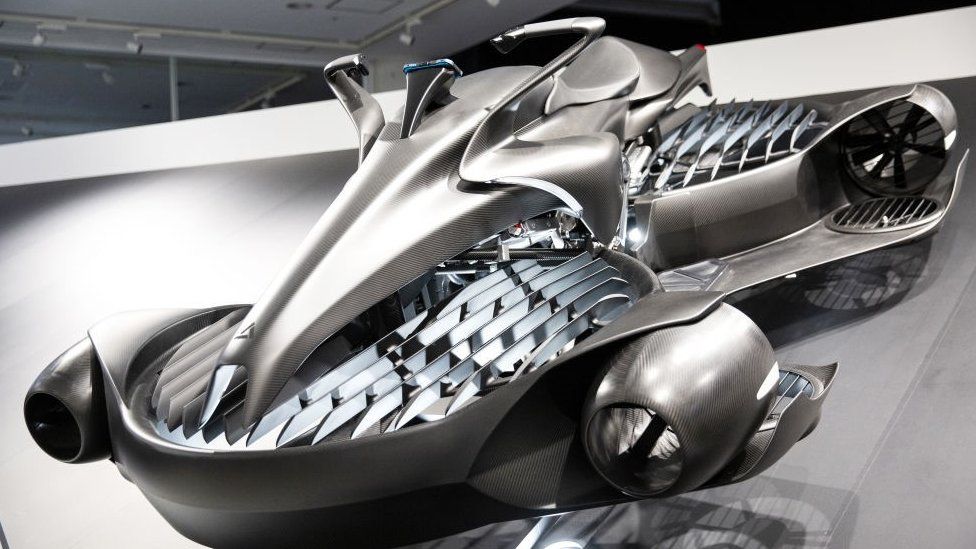ARTICLE AD BOX
 Image source, Getty Images
Image source, Getty Images
The Japanese start-up ALI Technologies, which had hoped to reimagine urban transport with a futuristic hoverbike, has filed for bankruptcy.
Its US parent company said the move was part of a planned relocation to California, where it hopes to revive its dreams with a new business partner.
ALI Technologies' hoverbike was heavily publicised - with Prince Albert II of Monaco pictured atop the craft at one point.
But it never sold in big numbers.
The bike, which executives once said was inspired by Star Wars, resembled a kind of aerial water scooter.
It could fly for about 40 minutes at up to 100km/h (62mph) on a single charge.
Chief executive Daisuke Katano said he hoped it would provide nothing less than a "new method of movement".
This Twitter post cannot be displayed in your browser. Please enable Javascript or try a different browser.View original content on Twitter
The BBC is not responsible for the content of external sites.
The bike went on sale in 2021 for a price of $680,000 (£534,000).
But the underlying business had troubles from the start, most significantly laws in Japan - and other places - prohibiting the devices from flying over city roads.
Ben Gardner, partner at law firm Shoosmiths, told the BBC that regulatory barriers meant the hoverbike, despite its "ground breaking" technology, ended up being of "limited use".
"With further research and development, engagement with government authorities, and marketing it could have stood a chance - at least in terms of more real world testing and deployment", he said.
"But all of this takes time and money - two things that ALI unfortunately ran out of."
Last year, ALI Technologies agreed to be acquired by the US firm Pono Capital Corp - a move that led to its shares being listed on the Nasdaq stock exchange and that it hoped would raise money.
But nearly all of Pono's investors chose to sell their stock after the listing, according to Bloomberg, denting the price in a way the Japanese firm could not recover from and leaving the firm with little new cash.
In October, ALI's US parent company, Aerwins Technologies, said it was relocating operations from Tokyo to California to focus on redesigning the hoverbike and wining regulatory certification there instead.
It announced a partnership in December with another US firm to help advance its plans and stopped operations in Japan. It said it hoped to offer the new vehicle for sale at a $200,000 price point.
"Following an evaluation of the viability of other areas of the company's business... we discontinued our non-core operations formerly carried out by our wholly owned indirect subsidiary, ALI," the company said in a regulatory filing onTuesday.
Many tech firms are vying to bring flying vehicles to urban areas.
A prototype flying car completed a 35-minute flight between Slovakian international airports in Nitra and Bratislava in 2021 and received certification in the country in 2022 although further details on its project are sparse.
Meanwhile in the US, the "Model A" flying car received a Special Airworthiness Certification from the Federal Aviation Administration in 2023.
In the US, retailers such as Amazon and Walmart are also experimenting with delivering parcels by drone to people's homes.

 1 year ago
20
1 year ago
20








 English (US) ·
English (US) ·